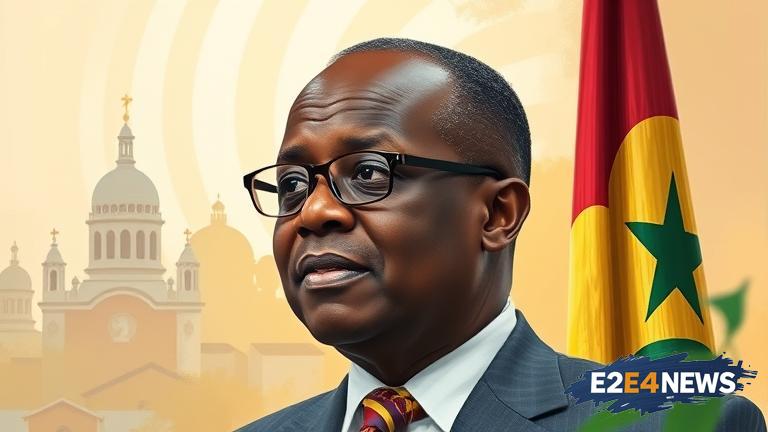Ghana’s economic landscape has been a subject of discussion among experts, with some attributing the country’s struggles to a lack of decisive leadership. Professor Godfred Bokpin, a renowned economist, has weighed in on the matter, stating that if previous leaders of the Bank of Ghana had demonstrated 40% of the current leadership’s resolve, the economy would be in a different state. According to Prof. Bokpin, the current leadership has shown a commitment to implementing policies that promote economic growth and stability. He praised the Bank of Ghana’s efforts to maintain a stable currency and reduce inflation. However, he noted that the country still faces significant challenges, including a large fiscal deficit and a high debt-to-GDP ratio. Prof. Bokpin emphasized the need for a comprehensive economic strategy that addresses these challenges and promotes sustainable growth. He also stressed the importance of investing in human capital and infrastructure development. The professor’s comments come at a time when Ghana is seeking to recover from the economic impact of the COVID-19 pandemic. The country has implemented various measures to stimulate economic growth, including a reduction in interest rates and an increase in government spending. Despite these efforts, the economy remains vulnerable to external shocks, and the government must continue to implement policies that promote economic resilience. Prof. Bokpin’s remarks have sparked a debate among economists and policymakers, with some agreeing that decisive leadership is essential for economic growth. Others have argued that the country’s economic challenges are more complex and require a multifaceted approach. The discussion highlights the need for a nuanced understanding of Ghana’s economic challenges and the importance of developing effective policies to address them. In recent years, Ghana has made significant progress in improving its business environment and attracting foreign investment. However, the country still faces challenges related to corruption, bureaucratic inefficiencies, and a lack of competitiveness. To address these challenges, the government has implemented various reforms, including the establishment of a new procurement law and the introduction of a digital address system. These reforms aim to improve transparency and reduce the cost of doing business in Ghana. Despite these efforts, the country’s economic growth remains slow, and the government must continue to implement policies that promote economic development. Prof. Bokpin’s comments emphasize the need for a coordinated approach to economic development, one that involves all stakeholders, including the government, private sector, and civil society. By working together, Ghana can develop a comprehensive economic strategy that addresses its challenges and promotes sustainable growth. The country’s economic future depends on its ability to implement effective policies and attract investment. With the right leadership and a commitment to economic reform, Ghana can overcome its challenges and achieve its development goals. In conclusion, Prof. Bokpin’s remarks highlight the importance of decisive leadership in promoting economic growth and development. Ghana’s economy has the potential to thrive, but it requires a coordinated approach and a commitment to implementing effective policies. The government, private sector, and civil society must work together to develop a comprehensive economic strategy that addresses the country’s challenges and promotes sustainable growth.
